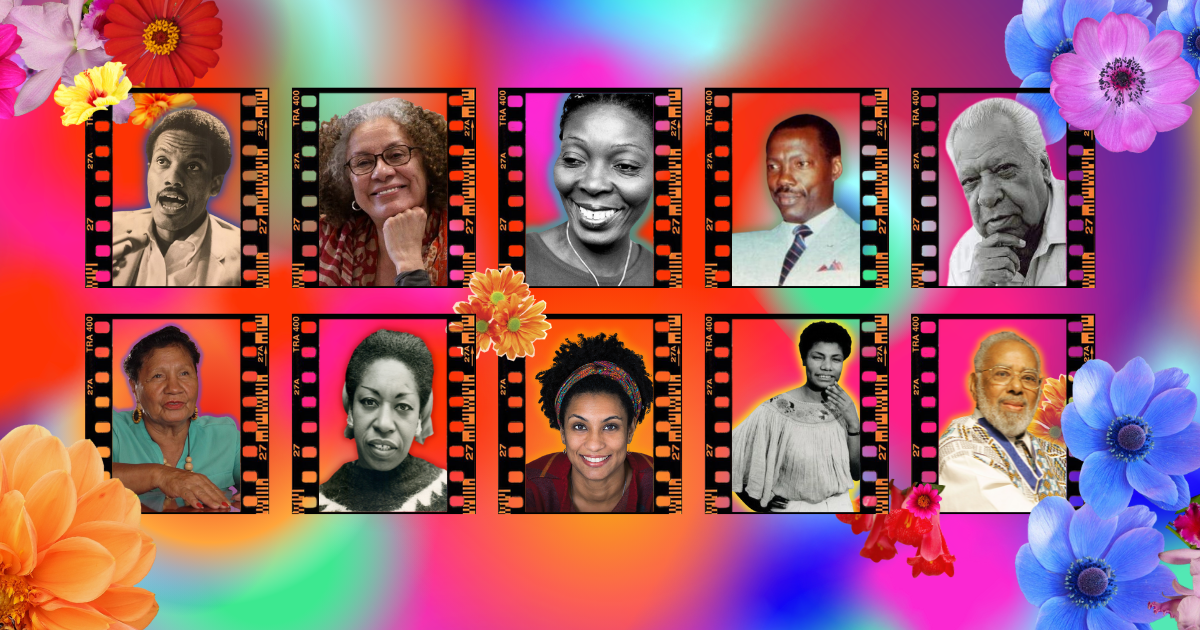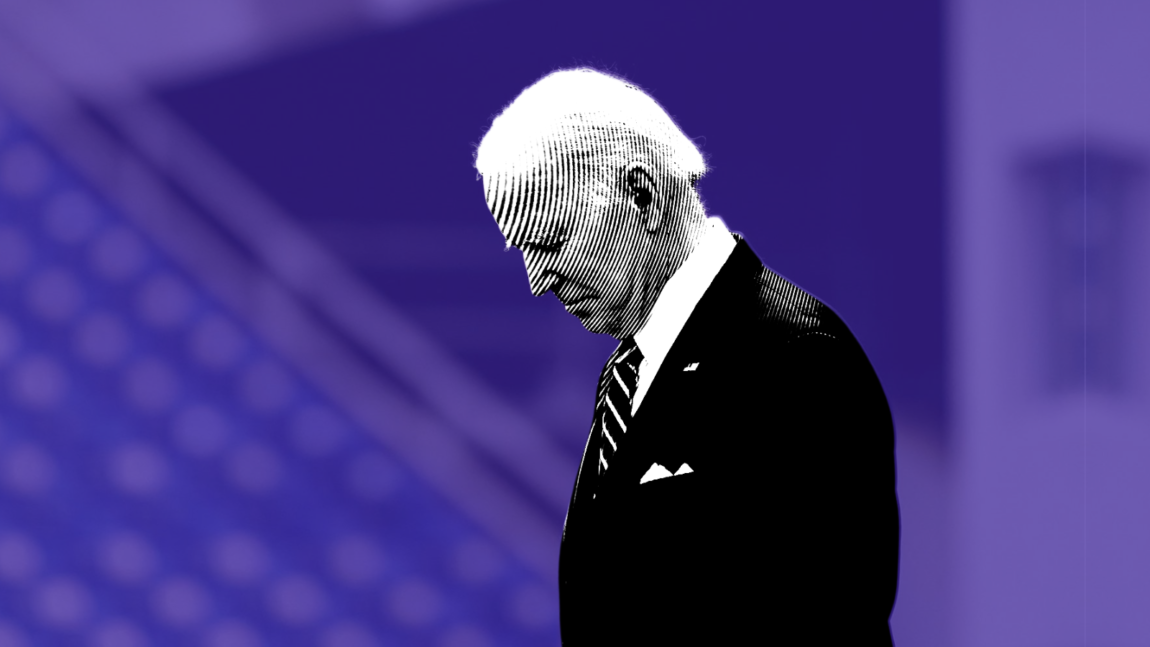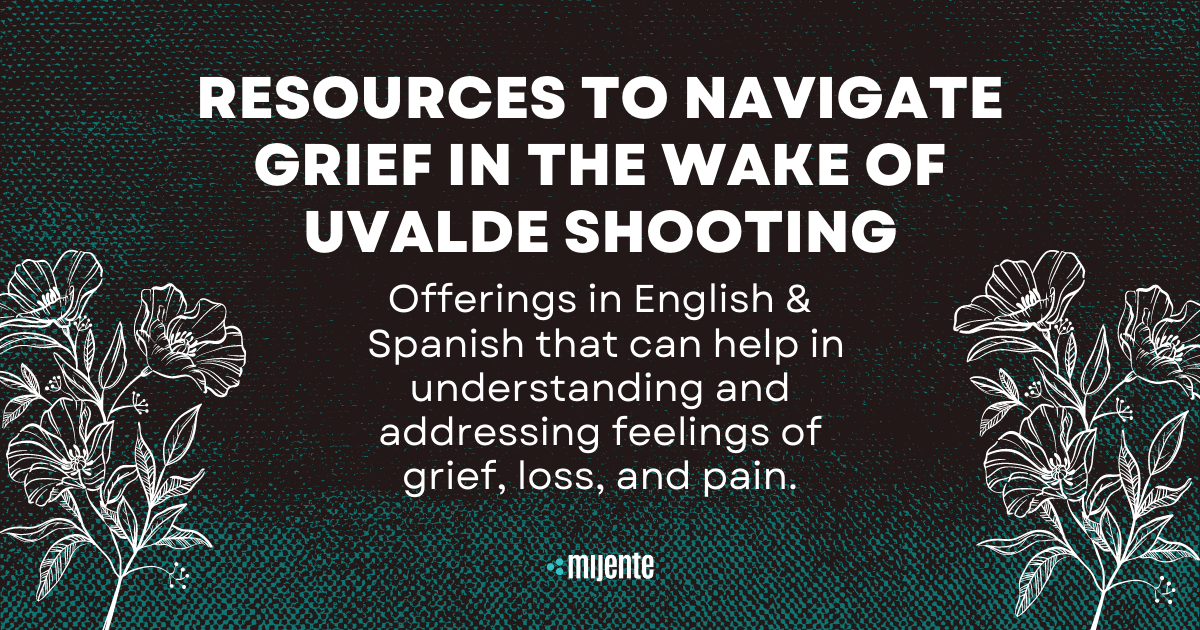Since launching Mijente in 2015 to help our gente achieve el Buenvivir, we have thrown down to protect the physical wellbeing and safety of people in crisis. From actions to halt deportation proceedings, to demanding the cancellation of digital prison alternatives, to our latest report on Latinx experiences with the police – we center the needs of our people.
It’s clear that safety and transformative justice do not exist within our policing systems nor the prison-industrial complex. With so much of our current justice system focused on punishment, there is little room to imagine a world that is truly safe for all. Many of us are first introduced to punishment culture at home and in the classroom, and then it’s reinforced on social media, glorified in movies through revenge plots and violence and in pop culture with canceling and shaming.
But the truth is punishment culture doesn’t get to the root of the issues our communities face.
As we continue learning together, here are 7 powerful quotes from current and past movement leaders that touch on our communities’ need for alternatives to punishment and prisons, and the systems that got us here.
1. “Hope is a discipline.”

“Hope is a discipline.” – Mariame Kaba
Together we must envision and build futures beyond the constraints of punitive measures. There is a lot of hope and power in the role parents, tias, caregivers, abuelos and neighbors can play in the fight to secure new forms of community safety and wellbeing. Alongside our Futuro Y Esperanza report, we led workshops and panel discussions to learn from and with our gente across the country and in Puerto Rico.
2. “Rarely, if ever, are any of us healed in isolation. Healing is an act of communion.”

“Rarely, if ever, are any of us healed in isolation. Healing is an act of communion.”- bell hooks
The cultural practices that we engage in have a direct relationship to the values we hold. When our communities lean into values that honor ourselves, each other, and the natural world around us, we see that punishment culture only deepens harm. Over the decades, our communities have made much progress in unlearning and untangling from the snares of oppressive systems like machismo, colonialism, and punishment culture. May we grow our practice of reciprocity and indigenous values, and support our collective healing towards achieving el buenvivir.
3. “What really keeps us safe? In large part, it’s dignity and opportunity…”

Our communities have been rethinking for years what public safety looks like and how it can be shaped outside of policing and punishment. Josie Duffy Rice shares:
“What really keeps us safe? Is it the back end of policing, is it the back end of prisons, or is it making sure kids have good schools? Making sure they have parks? Making sure someone picks up the garbage? What is it that provides people with safety? In large part, it’s dignity and opportunity, and if we don’t provide those two things, then we’re fighting a losing battle.”
4. “We change ourselves, through the course of changing society.”
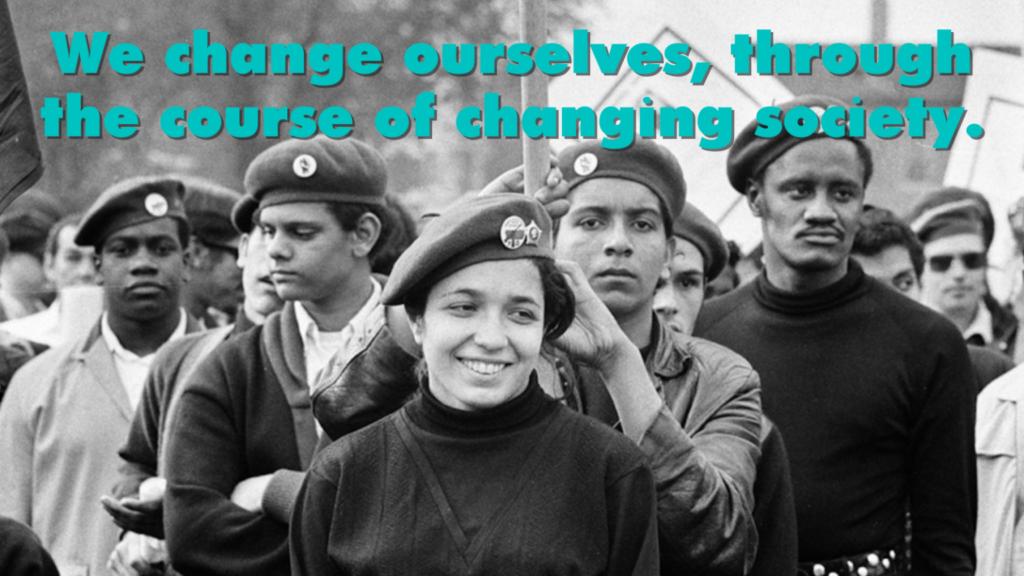
“We change ourselves, through the course of changing society.” – Iris Morales.
In the 1970s, Iris Morales and the “Women’s Caucus of the Young Lord’s Party presented the Central Committee with 10 demands, including removing “machismo” from their 13 point platform, child-care accommodations, the appointment of women to leadership positions, and inclusion of women’s history in their political education. All of this was accomplished and more, like developing their own all women-run publication, La Luchadora, and seeding the creation of a lesbian and gay caucus which was groundbreaking at the time.
The Young Lords Party had an openness and commitment to alternatives that could better the experience of the community. Thanks to their work and the leadership of these women, the Party continues to serve as a model of community and self transformation.
Read more about Iris Morales and women’s activism in the Young Lords Party here.
5. “imagine a constellation of alternative strategies and institutions, with the ultimate aim of removing the prison from our society.”
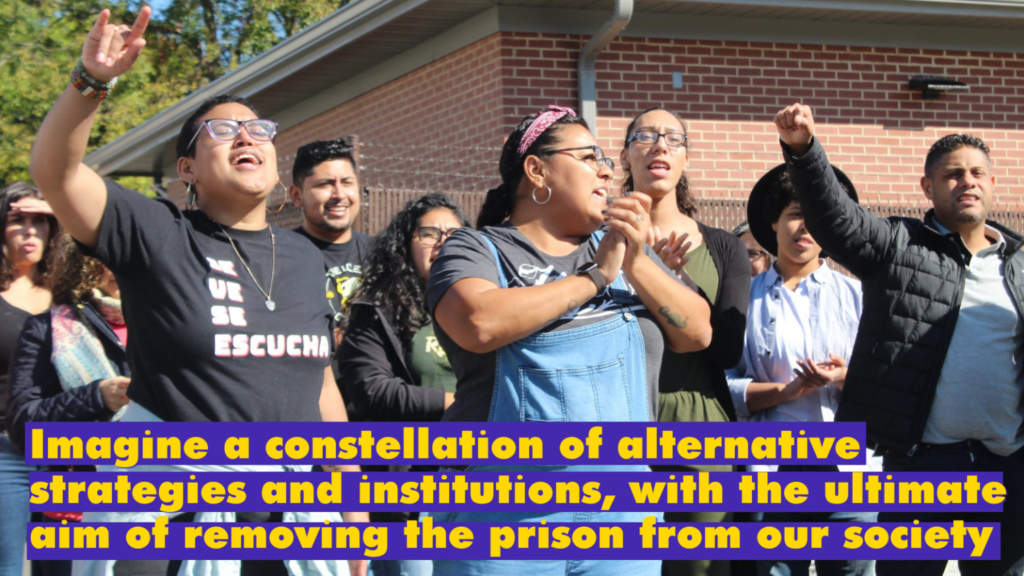
As we look at the current punishment culture, Angela Davis asks:
“What, then, would it mean to imagine a system in which punishment is not allowed to become the source of corporate profit? How can we imagine a society in which race and class are not primary determinants of punishment? Or one in which punishment itself is no longer the central concern in the making of justice? An abolitionist approach that seeks to answer questions such as these would require us to imagine a constellation of alternative strategies and institutions, with the ultimate aim of removing the prison from the social and ideological landscapes of our society.”
You can listen to Davis share on the meaning of prison-industrial complex here:
6. “It’s about building life-affirming institutions.”
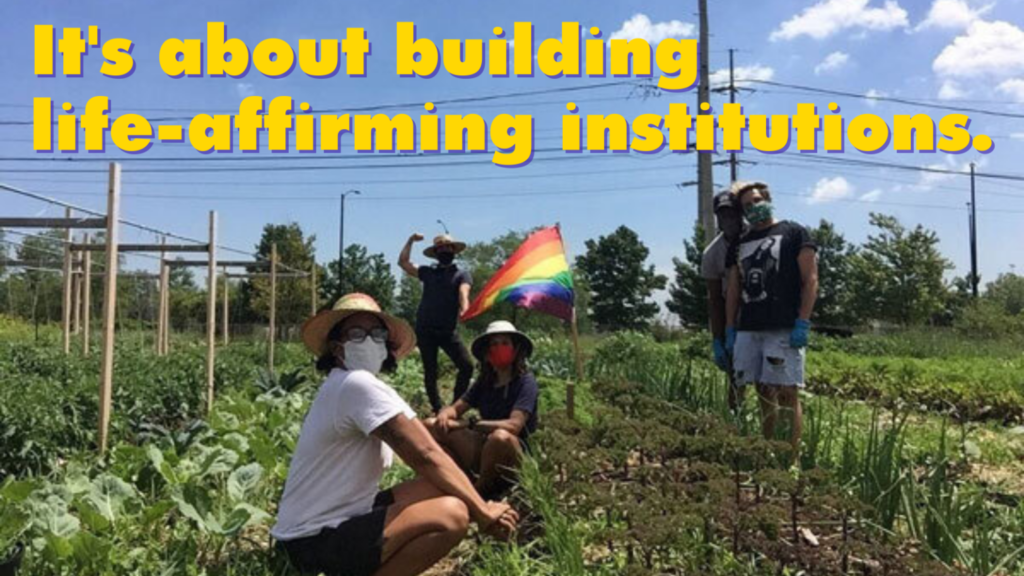
When the idea of building a future without modern day punishment culture and the violence of policing and prisons seems unattainable, Ruth Wilson Gilmore offers a clear picture: “Abolition is about presence, not absence. It’s about building life-affirming institutions.”
For the sake of our personal and collective buenvivir, it is essential that we reclaim our sense of imagination – because we can do right by our communities and redirect our political and social systems to work for us. When we think about alternatives to punishment, we know that the opportunities are vast, and that our gente has the power to build a better future for all.
7. “a vision of a different society, built on cooperation instead of individualism”
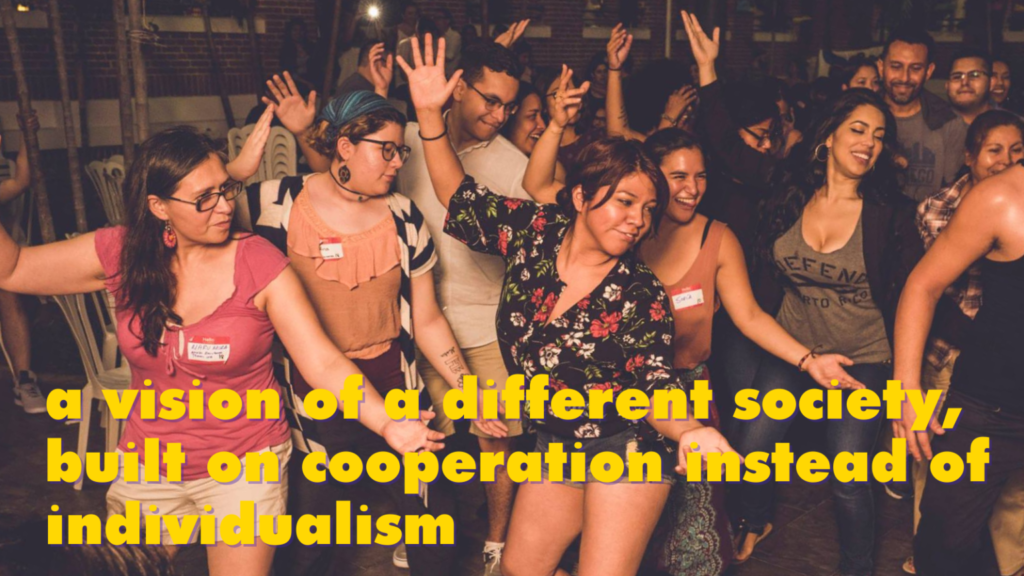
When speaking about imagining a world beyond prisons, policing, and punishment, Mariama Kaba says:
“People like me who want to abolish prisons and police, however, have a vision of a different society, built on cooperation instead of individualism, on mutual aid instead of self-preservation. What would the country look like if it had billions of extra dollars to spend on housing, food, and education for all?”
You can listen to Kaba’s recent interview about police, the politics of policing and what abolition means here:
Read more about community accountability processes to address interpersonal harm and violence (as alternatives to police and punishment culture) here: Fumbling Towards Repair A Workbook for Community Accountability Facilitators.
Stay connected with us as we continue exploring alternatives to policing, punishment culture, and punitive systems. To get a sense of how average Latinx adults are contemplating these issues, read our recently released report: Futuro y Esperanza: Latinx Perspectives on Policing and Safety.

